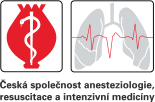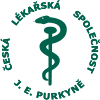Anest. intenziv. Med. 2000;11(4):159-164
The Complement System: A Two Edged SwordArticles
- 1 Klinik und Poliklinik für Anaesthesiologie und Intensivmedizin, Universitätsklinikum Carl Gustav Carus, Technische Universität Dresden
The complement system is a multifactorial protein cascade system which is essentially involved in the early unspecific immune response. Activationof the complement system is achieved by a variety of stimuli e.g. trauma, infection or immunologic reactions. Its major function is the activation ofcellular defense mechanisms, opsonisation of foreign particles and the destruction of target cells. While the impact of the different complementcomponents for bacterial elimination still remains controversial, overwhelming activation of the complement cascade, however, can induce lifethreatening tissue damage due to the effective cytotoxic properties. In the last years a variety of studies demonstrated beneficial, organ protectiveeffects of complement modulation in models of severe inflammation.Attempts to control the complement system include the application of endogenous complement inhibitors e.g. C1-Inhibitor (C1-INH) or theadministration of recombinant complement receptors such as the soluble complement receptor 1 (rsCR1). Moreover antibodies against key proteins(C3, C5), against their activation products (C5a) or against complement receptor 3 (CR3, CD18/11b) mediated adhesion of leukocytes to the vascularendothelium, represent effective options of complement modulation. Besides this, insertion of membrane bound human complement regulators (DAF- CD55, MCP - CD46 or CD59) into xenogenic donor organs, has proven effectiveness to prevent xenograft rejection.The described interventions protected from severe organ damage in various animal models of sepsis, myocardial and intestinal ischaemia -reperfusion injury, ARDS, nephritis, and xenograft rejection. With respect to recent clinical data, complement inhibition could represent a usefultherapeutic strategy to control overwhelming inflammation. Own experiments demonstrated protective effects of complement modulation with C1 INHand rsCR1 in a model of complement induced pulmonary injury. With respect to a potential impairment of host defense, however, the use of complementinhibitors must be considered carefully.
Keywords: multifactorial protein cascade; modulation of complement; sepsis
Published: August 1, 2000 Show citation




